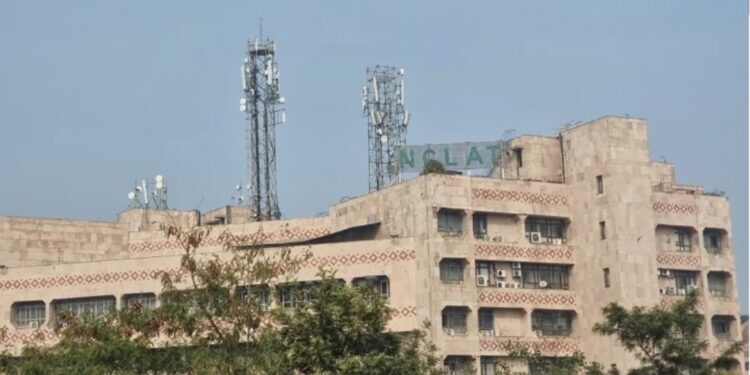The National Company Law Appellate Tribunal (NCLAT) in Delhi recently disagreed with a Kerala High Court judgment regarding a key aspect of initiating the corporate insolvency resolution process (CIRP) against personal guarantors.
The issue in question was the effective date of such an application under Section 95 of the Insolvency and Bankruptcy Code (IBC), determining when an interim moratorium under Section 96 IBC begins.
In a July 2 ruling, a bench comprising Chairperson Justice (retired) Ashok Bhushan and Technical Member Arun Baroka held that the effective date of such an application is the date on which it is filed, not the date on which it is registered.
This ruling aligned with the NCLAT’s 2022 decision in the case of Krishan Kumar Basia v. State Bank of India. However, in 2023, the Kerala High Court took a contrary view in the case of Jeny Thankachan v. Union of India, stating that a moratorium would commence only after an application is defect-free and complete in all respects, not necessarily on the date of filing.
The NCLAT maintained that it was bound to follow its earlier 2022 ruling, citing the National Company Law Tribunal Rules (NCLT Rules) of 2016, which indicate that the date of filing an application is relevant. It noted that this aspect and the 2022 NCLAT ruling might not have been brought to the attention of the Kerala High Court during the Jeny Thankachan judgment.
“We observe that the Kerala High Court’s statement that an interim moratorium shall commence only when an application is defect-free and registered was made without considering the statutory scheme outlined in the NCLT Rules, 2016. The date of filing the application must be determined according to statutory rules governing applications under Section 95. We have already noted the three-member bench judgment of this Tribunal in Krishan Kumar Basia decided on July 14, 2022, which predates the Kerala High Court’s judgment on November 16, 2023. Given the three-member bench judgment covering this issue, we are bound by it and are not persuaded to accept the Kerala High Court’s view in the Jeny Thankachan case,” the NCLAT stated.
The NCLAT made this observation while dismissing an appeal by a personal guarantor who challenged a May 1 NCLT order to appoint a resolution professional (RP).
The NCLT had asked the RP to examine an application to initiate CIRP against a personal guarantor of Supertech Limited, which had defaulted on some loans. The RP was ordered to submit a report on the matter under Section 99 of the IBC.
This May 1 order was issued based on an application filed under Section 95 (application by creditor to initiate insolvency resolution process in respect of personal guarantors) of the IBC by financial creditor IFCI Bank Ltd. The application was filed on June 2, 2021, and registered on August 9, 2021.
Notably, another financial creditor, PNB Housing Finance Limited (PNBHFL), filed a similar application about a month later, on July 14, 2021. However, this application was registered on August 2, 2021, before IFCI’s application was registered.
On May 1, the NCLT appointed an RP to examine whether the insolvency proceedings against the personal guarantor should proceed.
The personal guarantor challenged this May 1 order before the NCLAT, arguing that an interim moratorium under Section 96 IBC, triggered by PNBHFL’s application, was still in effect.
This appeal was contested by IFCI, which argued that even if PNBHFL’s application was registered first, IFCI’s application was filed much earlier. Thus, the moratorium period referred to in Section 96 began from the date of IFCI’s application filing (June 2), rendering the prior registration of PNBHFL’s application or its pendency irrelevant.
The appeal’s outcome hinged on whether the interim moratorium under Section 96 IBC starts on the date an application to initiate CIRP is filed or the date it is registered.
The NCLAT eventually sided with IFCI, relying on previous verdicts that the date of “filing” an application under Section 95 is when it is e-filed, not when it is numbered and registered by the registry.
“Applying this principle to the present case, we must conclude that IFCI’s application was filed earlier, and the fact that PNBHFL’s application was registered earlier is inconsequential. The moratorium shall commence on the filing of IFCI’s application,” the NCLAT held, dismissing the appeal.
Advocates Gaurav Mitra, Lokesh Malik, and Adit Singh represented the personal guarantor (appellant). Advocates Amish Tandon and Anushree Kulkarni represented IFCI Limited.

















